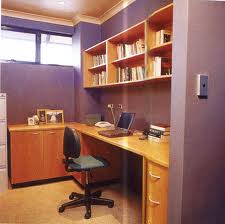With recent changes to my career, two weeks ago I began the adventure of building my own public affairs consultancy and also developing rapidly The Armchair Selector.
Since then, I’ve learned and reflected on a number of principles for working from home and how to maximise my productivity. Love to hear your experiences and thoughts
1. Wear shoes: It’s easy to slouch around in house wear, after all, who will see you? A friend suggested it’s good to have shoes on – and the rest follows. My ‘work from home’ attire is smart casual. I’m here to work, and when I do meetings and catch-ups, it’s a suit. You mean business, you are your business brand, so look the part.
2. Turn Twitter off: What?! Really. Twitter is a wonderful business and communication tool, but it’s too easy to get distracted and before you know it, 15 minutes has gone, and you’ve become sidetracked. Already I’ve learned many of the people I communicate with in Australia are on Twitter in the mornings till about 9.30am and then back later in the day. As my smartphone pops up any mentions or DMs, I can decide if I want to respond, or not. It also increases productivity and reduces the inadvertent risk of getting into lots of conversations or retweeting interesting things and clogging up others’ Twitter streams. A tip – use your Twitter lists or save your frequently-searched hashtag conversations and scan them when you need to.
3. Don’t auto schedule tweets and not be there for them: I’ve read lots of posts about using Buffer, etc to schedule tweets. I do it – I use Tweetdeck to have things ready to go for both my @jeremy_irvine and @armchairselctor accounts – but I plan them in advance knowing when I will be on Twitter so I can respond to people. Twitter shouldn’t be treated like a one-way press release service; you’ll grow your following by conversing – and that means being online.
4. Have a list: Not hard, but important. I went from a Microsoft package at work where I used the task functionality to …. well, nothing. I use reminders on my iPhone, and I set myself a priority order and time of tasks I’ll do each day. It’s tempting to go nuts and do lots of stuff – but the important thing is to get what needs to be done first, done first (thanks John Drucker!).
5. Set up a decent IT system: Flying solo does not necessarily mean rubbish IT. Google Apps for business is a good place to start, and you can set Gmail up to run your own domain’s email. For example, The Armchair Selector email system is based on a Gmail platform, which took me five minutes to divert from my server host, Mediatemple – they even have a ‘divert to Gmail’ button. Once you do this, you can access your work / domain email anywhere and Gmail has functionality such as auto signature, out of office notification, and easy to important contacts setup, for instance. I’m far from technical, and with a bit of patience and thinking it through, you’re up and away. The cloud is your friend.
6. Work to where your colleagues and clients are: Many of the people I liaise with are in Melbourne’s CBD. I’m not – but only a fifteen minute tram or train ride away. If you’re asking for a meeting, make it easy for them – go to where they are. Professional courtesy doesn’t cost anything and free wifi spots abound. Suit up, shave, polish your shoes and go to where they do business. Similarly, I am working more and more with a colleague for The Armchair Selector who lives in Wales. Ten hour time difference. Google+ chat, quick natter. I start when he’s finishing his day; vice versa. Be prepared and be flexible in working to different timezones – and make it clear when you’re not available.
7. Take breaks: Sedentary sitting at a desk does you no favours health-wise. I set a timer on my phone for an hour; it goes off, I get up and walk around even for a few minutes or whatever. There’s a dishwasher to be unpacked, washing taken out – it makes the housework-ish stuff get done and my mind, eyes and back have a break.
8. Work to your body rhythms: A decade ago when I worked in politics, I’d stop for lunch at 2.00pm when Question Time was on, having started very early. I’ve never gotten out of that habit, and so the new arrangements allow me to play to my strengths which is that I’m focused and highly productive in the first few hours of the day and can work rapidly. Understand and work to what suits you best – it’s your business, you set your framework. Make it work for you.
9. Stop and think: Too often in any organisation people hurtle around, it’s do, do, do – and not think, do, reflect. A friend of mine who works for himself told me he blanks out every second Friday to stop, reflect, catch-up and plan. If you’re not taking the time to think about your business, do some professional reading, or mind mapping, who is?
10. Have fun!: Really? By all means – if you are creating your dream role, and working for yourself, why not create your own organisational culture – even if it’s just you?! What’s to stop you from having a radio on or having a break and recharging by reading a book that isn’t to do with work. It’s your dream. Your business. Create the dream you want. I’ve never listened to such much jazz in my life in such a short space of time – and I love it. I’m happy doing what I do, and what I do makes me happy.
What’s your advice to people starting up and working from home? Leave your thoughts or pop me a line at @jeremy_irvine, or Google+.


